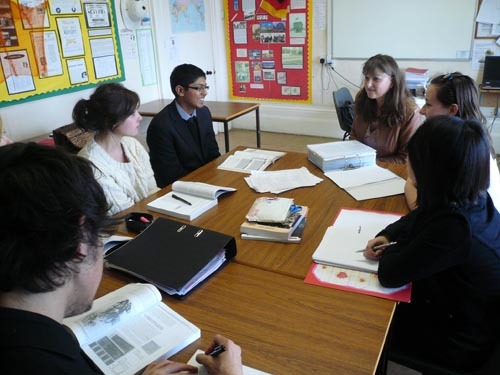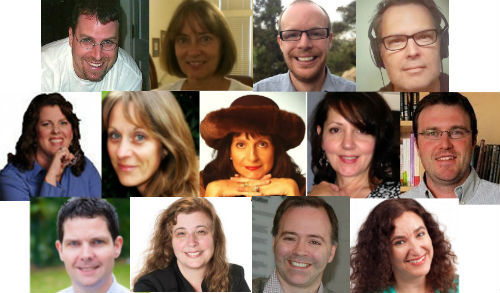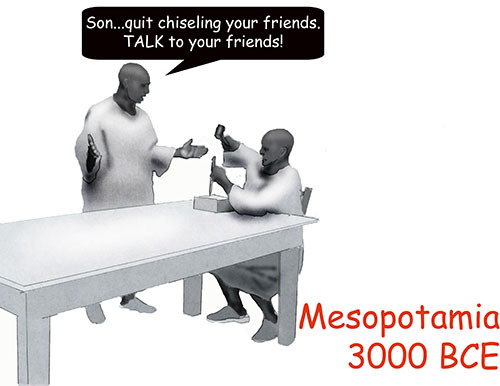
Each month we ask our Top 12 Global Teacher Bloggers to share their perspectives on the issues that teachers around the world believe are the most critical. Following the new AFT and Badass Teachers survey, we asked our Global Top 12 Teachers to share their solutions to this question: “Quali sono le soluzioni rapide per combattere lo stress insegnante in una classe?”
Primo, please allow me to plug US based Pauline Hawkins’ (PaulineDHawkins) terrific new book that we recommend for educators and parents: Nucleo comune: 25 Modi per aiutare il vostro bambino riesce in un Cookie Cutter Sistema educativo. Pauline suggests that stress usually comes from forces outside, not inside the classroom, Per es. administrators putting pressure on teachers to teach to the test. Her experienced tips for relieving stress begin with an exercise regime that allow you to remain fully engaged with your students while ensuring you are also taking care of your own health… Per saperne di più.
Elementary school assistant principal Brenda Maurao (@bmaurao) acknowledges that the “new demands placed on teachers recently, including educator evaluation and high stakes testing have changed the climate in many of our schools.” She shares five strategies that have helped the teachers in her building combat classroom stress including celebrating success and supporting a collaborative culture. Per saperne di più.
Karen Lirenman dal Canada (KLirenman) uses her twenty three years of teaching experience to offer some well practiced advice for teachers seeking to relieve stress. Positive uplift is key, from celebrating the little things to taking some time to yourself.Per saperne di più.
Craig Kemp da Singapore (mrkempnz) acknowledges that teachers’ workloads are increasing and that “time is an educator’s most valuable resource.” Craig offers an unexpected tip to combat stress in the classroom – humor and laughter. This comes in addition to some tried and true methods, such as staying organized and offering positive reinforcement. Per saperne di più.
US based Vicki Davis (coolcatteacher) claims it takes “rock-solid habits of mind and life to be the kind of self-assured Captain who can weather the storm.” When it comes to relieving stress, Vicki suggests accepting the worst potential outcome, and working to improve the situation from there. She also offers practical tips like drinking enough water and exercising. Per saperne di più.
Nuova Zelanda basato Richard Wells (iPadWells) recommends long-term work, such as fostering a learning environment that encourages confident students, rather than short term fixes. He gives some helpful ways to approach this including setting manageable personal goals for each student. Per saperne di più.
Ultimo, ma non per importanza, how does a Superhero dominate stress? US based Todd Finley (finleyt) claims none of the traditional stress busters work for him – Invece, Todd recommends teachers beat stress like Batman would! Check out this superhero’s exercise regimen which can help refocus your brain and allow you to better manage classroom pressure! Per saperne di più.
Tom Bennett, Joe Bower, Susan Bowles, Lisa Currie, Vicki Davis, Todd Finley, Pauline Hawkins, Craig Kemp, Karen Lirenman, Adam Steiner, Silvia Tolisano, e Richard Wells sono Il Global Ricerca per l'Educazione 2014 Top 12 Globale Maestro blogger.

(Photo is courtesy of C. M. Rubin)
Unitevi a me e leader di pensiero di fama mondiale tra cui Sir Michael Barber (Regno Unito), Dr. Michael Block (Stati Uniti), Dr. Leon Botstein (Stati Uniti), Il professor Argilla Christensen (Stati Uniti), Dr. Linda di Darling-Hammond (Stati Uniti), Dr. MadhavChavan (India), Il professor Michael Fullan (Canada), Il professor Howard Gardner (Stati Uniti), Il professor Andy Hargreaves (Stati Uniti), Il professor Yvonne Hellman (Paesi Bassi), Il professor Kristin Helstad (Norvegia), Jean Hendrickson (Stati Uniti), Il professor Rose Hipkins (Nuova Zelanda), Il professor Cornelia Hoogland (Canada), Onorevole Jeff Johnson (Canada), Sig.ra. Chantal Kaufmann (Belgio), Dr. EijaKauppinen (Finlandia), Sottosegretario di Stato TapioKosunen (Finlandia), Il professor Dominique Lafontaine (Belgio), Il professor Hugh Lauder (Regno Unito), Signore Ken Macdonald (Regno Unito), Il professor Geoff Masters (Australia), Il professor Barry McGaw (Australia), Shiv Nadar (India), Il professor R. Natarajan (India), Dr. PAK NG (Singapore), Dr. Denise Papa (Stati Uniti), Sridhar Rajagopalan (India), Dr. Diane Ravitch (Stati Uniti), Richard Wilson Riley (Stati Uniti), Sir Ken Robinson (Regno Unito), Professor Pasi Sahlberg (Finlandia), Il professor Manabu Sato (Giappone), Andreas Schleicher (PISA, OCSE), Dr. Anthony Seldon (Regno Unito), Dr. David Shaffer (Stati Uniti), Dr. Kirsten Immersive Are (Norvegia), Cancelliere Stephen Spahn (Stati Uniti), Yves Theze (LyceeFrancais Stati Uniti), Il professor Charles Ungerleider (Canada), Il professor Tony Wagner (Stati Uniti), Sir David Watson (Regno Unito), Professor Dylan Wiliam (Regno Unito), Dr. Mark Wormald (Regno Unito), Il professor Theo Wubbels (Paesi Bassi), Il professor Michael Young (Regno Unito), e il professor Zhang Minxuan (Porcellana) mentre esplorano le grandi questioni educative immagine che tutte le nazioni devono affrontare oggi.
Il Global Ricerca per l'Educazione della Comunità Pagina
C. M. Rubin è l'autore di due ampiamente lettura serie on-line per il quale ha ricevuto una 2011 Premio Upton Sinclair, “Il Global Ricerca per l'Educazione” e “Come faremo a Leggere?” Lei è anche l'autore di tre libri bestseller, Compreso The Real Alice in Wonderland, è l'editore di CMRubinWorld, ed è un disgregatore Foundation Fellow.
Segui C. M. Rubin su Twitter: www.twitter.com/@cmrubinworld






Commenti recenti